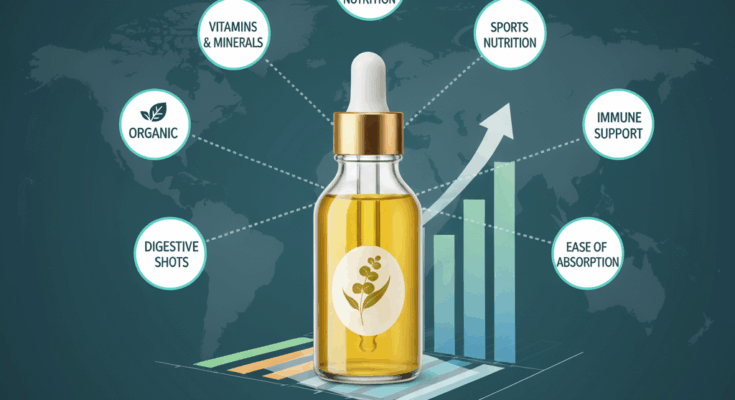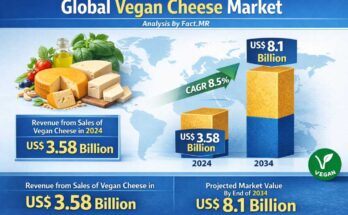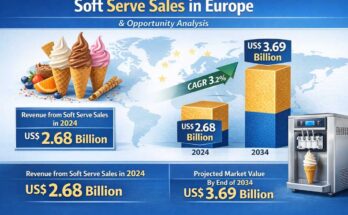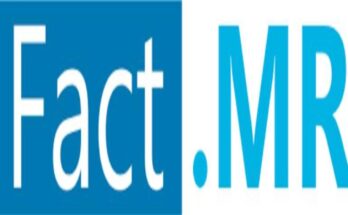The liquid dietary supplement market has witnessed significant growth over the past few years, driven by rising health awareness and increasing consumer preference for convenient nutritional solutions. With modern lifestyles becoming busier, consumers are increasingly turning to liquid dietary supplements as an efficient way to meet daily nutrient requirements. These supplements, which include vitamins, minerals, amino acids, and botanicals in liquid form, offer faster absorption and better bioavailability compared to traditional tablets and capsules.
In this article, we provide a comprehensive overview of the liquid dietary supplement market, analyzing key trends, regional insights, growth drivers, challenges, and opportunities for both established companies and new entrants.
Market Overview
Liquid dietary supplements are products designed to enhance overall health, improve immunity, and address nutritional deficiencies. They are available in various forms, including ready-to-drink liquids, concentrated syrups, and powders that can be mixed with water or other beverages. These supplements cater to a wide range of consumers, from fitness enthusiasts to older adults seeking targeted nutritional support.
The demand for liquid dietary supplements has surged due to several factors: the convenience of consumption, higher absorption rates, increasing awareness of preventive healthcare, and a growing emphasis on holistic wellness. As consumers seek personalized nutrition solutions, manufacturers are innovating with targeted formulas that cater to specific health needs such as immunity, energy, digestive health, and joint support.
Key Market Drivers
- Rising Health Awareness
One of the primary drivers of the liquid dietary supplement market is growing consumer awareness regarding personal health and nutrition. As people become more informed about the benefits of vitamins, minerals, and other essential nutrients, the demand for convenient liquid formulations continues to rise. Consumers are increasingly focused on proactive health management, especially in light of global health challenges.
- Convenience and Better Absorption
Liquid supplements provide faster and more efficient nutrient absorption compared to solid forms. This convenience appeals particularly to seniors, children, and individuals with difficulty swallowing pills. The easy-to-consume nature of liquid supplements positions them as a preferred choice for people with hectic lifestyles who seek effective nutrition without the hassle of multiple tablets.
- Personalized Nutrition
The trend toward personalized nutrition is gaining momentum. Companies are now offering customized liquid dietary supplements based on individual health assessments, lifestyle, and dietary preferences. This approach not only enhances customer satisfaction but also opens new avenues for innovation and market expansion.
- Increasing Geriatric Population
The aging global population has led to rising demand for dietary supplements that promote overall health, mobility, and vitality. Older adults often face challenges in absorbing essential nutrients, making liquid supplements an attractive and effective solution.
- Growth of Preventive Healthcare
Preventive healthcare is becoming a top priority among consumers worldwide. Liquid dietary supplements are widely used to strengthen immunity, improve energy levels, and maintain general well-being. Rising incidences of chronic diseases have further accelerated the adoption of these products as part of daily health routines.
Market Challenges
Despite the strong growth potential, the liquid dietary supplement market faces certain challenges:
- High Production Costs: Manufacturing innovative and high-quality liquid formulations can be capital-intensive. Companies need to invest significantly in R&D and advanced production technologies to stay competitive.
- Regulatory Constraints: Strict regulations concerning safety, efficacy, and labeling of dietary supplements can hinder market entry and slow down the launch of new products.
- Price Sensitivity: Premium liquid supplements are often more expensive than traditional tablets or powders. Price-sensitive consumers may limit their adoption, particularly in emerging markets.
- Limited Organic Options: Consumer preference is shifting toward organic and clean-label supplements, but limited availability can restrict market growth.
Regional Insights
North America
North America remains a dominant market for liquid dietary supplements due to high consumer spending on health and wellness products, awareness of preventive healthcare, and the presence of key market players. Rapid lifestyle changes and high prevalence of chronic conditions such as obesity and cardiovascular diseases have further fueled demand. Companies in the region are leveraging digital marketing, e-commerce platforms, and personalized nutrition services to enhance their market presence.
Europe
Europe is witnessing steady growth in liquid dietary supplements, driven by increasing demand from the aging population and strong awareness of preventive healthcare. Countries like Germany and the UK show robust consumption patterns, with vitamin-rich and organic liquid supplements gaining popularity. Clean-label and sustainable product trends are shaping the European market.
Asia-Pacific
Asia-Pacific is emerging as a lucrative market due to rising health consciousness, growing disposable incomes, and increasing penetration of modern retail channels. Countries like China, India, and Japan are witnessing rapid adoption of liquid dietary supplements, particularly among urban populations seeking convenience and immunity-boosting solutions.
Middle East & Africa (MEA)
The MEA region is also showing promising growth as consumers increasingly recognize the importance of dietary supplements in maintaining health. The market is driven by both preventive healthcare awareness and increasing investments by regional companies in R&D and product innovation.
Competitive Landscape
The liquid dietary supplement market is highly competitive, with a mix of global brands, regional players, and innovative start-ups. Leading companies are focusing on product innovation, strategic collaborations, and expansion into emerging markets to strengthen their positions. Some prominent players in the market include:
- BASF SE
- Herbalife International
- Bayer AG
- Koninklijke DSM NV
- Abbott Laboratories
- Amway Corporation
- E.I DuPont de Nemours (DuPont)
- GlaxoSmithKline Plc
- Glanbia Plc
Innovation and R&D
Investments in research and development are crucial for staying ahead in this market. Companies are exploring new formulations, plant-based ingredients, and functional supplements targeting immunity, energy, and cognitive health. Personalized liquid dietary supplements, created through digital health assessments, are gaining traction as an innovative approach to meet specific consumer needs.
Consumer Trends
- Functional Nutrition: Consumers increasingly prefer supplements that provide specific benefits such as immune support, digestive health, or mental clarity.
- Organic and Natural Ingredients: There is a growing preference for clean-label, organic, and plant-based supplements that align with holistic wellness trends.
- E-commerce Adoption: Online platforms are becoming the primary channel for purchasing liquid dietary supplements due to convenience and availability of personalized options.
- Subscription Models: Subscription-based delivery services are gaining popularity, offering consumers a consistent supply of customized liquid supplements.
Opportunities for New Entrants
New companies can make a mark in the liquid dietary supplement market by focusing on product innovation, capitalizing on digital health trends, and leveraging personalized nutrition. Strategies such as raising funds for R&D, partnering with healthcare professionals, and targeting niche markets like seniors, athletes, or wellness-focused urban populations can accelerate growth. Embracing technology-driven solutions for consumer assessments, product customization, and online distribution will be key differentiators.
Future Outlook
The liquid dietary supplement market is poised for continued growth as consumers increasingly prioritize health, convenience, and preventive care. Key factors shaping the market in the coming years include:
- Expansion of product portfolios with functional and immunity-boosting formulations.
- Integration of digital tools for personalized nutrition.
- Rising demand in emerging markets due to growing awareness and disposable income.
- Enhanced focus on sustainability, organic ingredients, and clean-label products.
- Collaborations and partnerships to drive innovation and expand market reach.
With ongoing research, technological advancement, and consumer-driven innovation, the liquid dietary supplement market is expected to remain dynamic and highly lucrative over the next decade.
Conclusion
Liquid dietary supplements have emerged as a convenient, effective, and increasingly popular solution for maintaining health and well-being. The market is driven by rising health awareness, demand for personalized nutrition, and lifestyle changes among consumers. While challenges like regulatory constraints and production costs exist, innovation and strategic market expansion offer substantial opportunities for both established companies and new entrants.
As the global focus on preventive healthcare, immunity, and holistic wellness intensifies, the liquid dietary supplement market is expected to continue its growth trajectory, offering diverse opportunities for innovation, profitability, and consumer engagement.



